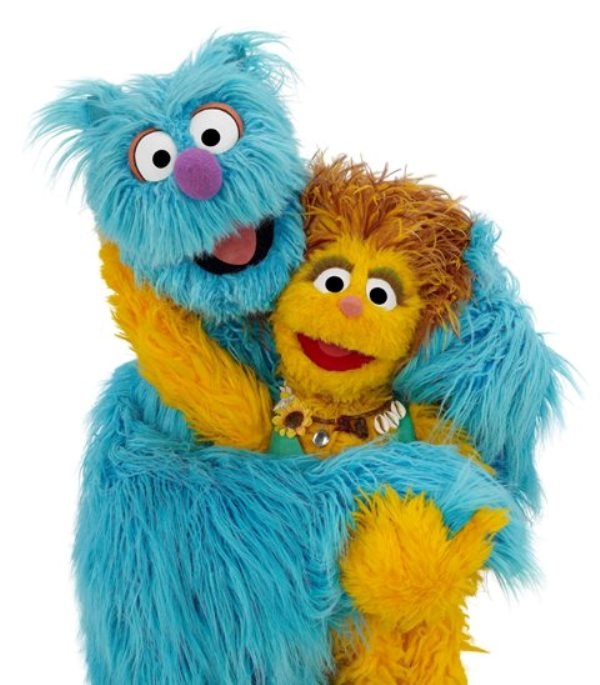Kilimani Sesame Has Positive Impact on Children in Tanzania

There are 8.3 million children who are 5 years and younger living in Tanzania. With limited access to formal education, can media intervention make a positive and significant impact on what these children learn? Sesame Workshop, which produces Kilimani Sesame, the Tanzanian version of Sesame Street, recently commissioned researchers from the Johns Hopkins Bloomberg School of Public Health in full collaboration with a Dar es Salaam-based research team, to examine the effects of a six-week intervention delivering Kilimani Sesame content to 223 children in the rural district of Kisarawe and the city of Dar es Salaam. The article is expected to be published in July in the Journal of Applied Developmental Psychology.
Kilimani Sesame, which features the feathered and furry Muppets characters of Sesame Street, presents educational objectives that include improving children’s basic literacy and numeracy skills, as well as providing knowledge and reducing the stigma related to HIV/AIDS. The study found that children with greater exposure to Kilimani Sesame showed more gains in cognitive, social and health outcomes than those with less exposure. Specifically, children who viewed more Kilimani Sesame content had higher scores on tests of literacy and primary math skills, greater ability to describe appropriate social behaviors and emotions, and knew more about malaria and HIV/AIDS. Children with greater exposure to Kilimani Sesame were also more likely to say an HIV-positive child could play with others and that they would invite an HIV-positive person into their home to share a meal. These findings remained robust over and above the contribution of factors that are important in predicting these outcomes: child age, child gender, location, general media exposure, and the child’s performance in these outcomes prior to the intervention.
“We are pleased that researchers at an esteemed academic institution have found evidence of the impact of this media intervention,” said Charlotte Cole, PhD, vice president of International Education, Research, and Outreach at Sesame Workshop. “Children learn best when learning opportunities match their own daily life experiences. Kiilmani Sesame, which was developed by a team of Tanzanian educators and producers, provides images and content that features an environment familiar to its viewers and imparts age-appropriate messages – such as malaria prevention information – that are critical to children living in the country.”
“This was an exciting opportunity to see how media can have a great impact,” said Dina L.G. Borzekowski, EdD, lead author of the study and associate professor in the Bloomberg School's Department of Health, Behavior and Society. She continued, “Despite lacking basic resources such as household water and electricity, children in this study benefited from the culturally-relevant and age-appropriate books, radio and video. Sesame Workshop demonstrates how media can best be used to engage and motivate young children. This intervention offers a powerful, educational foundation to help Tanzanian children reach their highest potential.”
The full findings will be available in the Journal of Applied Developmental Psychology, published by Elsevier, next month.
Funded by the United States Agency for International Development (USAID), Kilimani Sesame was a multimedia educational project in Kiswahili consisting of thirteen half-hour television shows airing in Tanazania Broadcasting Company (TBC) and Television Zanzibar (TVZ), thirteen 15-minute radio shows, three storybooks, and a teacher and parent guide containing early childhood education tips and activities. The program launched in 2008.
Sesame Workshop is the nonprofit educational organization that revolutionized children’s television programming with the landmark Sesame Street. The Workshop produces local Sesame Street programs, seen in over 140 countries, and other acclaimed shows to help bridge the literacy gap including The Electric Company. Beyond television, the Workshop produces content for multiple media platforms on a wide range of issues including literacy, health and military deployment. Initiatives meet specific needs to help young children and families develop critical skills, acquire healthy habits and build emotional strength to prepare them for lifelong learning. Learn more at www.sesameworkshop.org.
